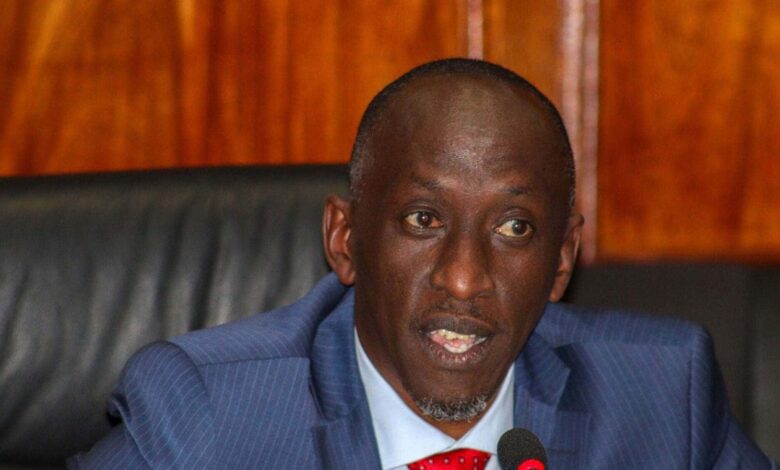Kenya Proposes Bitcoin Trade Regulation in Fear of Grey Listing

Kenya is establishing new bitcoin trade regulation policies to oversee the trading of cryptocurrencies in order for the country to avoid the risk of getting put on the FATF grey list. Listing
The move comes months after the Kenya National Assembly’s Finance and National Planning Committee approved a bill allowing the taxation of over four million Kenyans who are thought to be cryptocurrency traders.
The nation is concerned about the growing volume of virtual asset transactions, which could heighten the risks of money laundering and terrorism financing.
A technical working group is preparing a draft of regulations to give to the Cabinet for adoption. This will mark one of the key interventions in addressing weaknesses in the Kenyan financial system.
Furthermore, the Financial Reporting Centre (FRC) director-general, Saitoti Maika said, “Right now, there is a sectoral working group that is working on developing a policy document. This will guide on developing a legal framework which will prescribe what needs to be done and who will be the regulator for digital assets providers.” Adding on, “Probably, we may end up with a stand-alone regulator for virtual assets. We can’t bury our heads in the sand. The more we fail to regulate, the more we risk being punished.”
The country currently lacks regulations for trading in cryptocurrencies. This, despite Chainalysis ranking Kenya among top dealers in peer-to-peer cryptocurrency platforms. The platforms allow traders to transact directly with one another. More over, there is no need for a centralized third party to facilitate the transactions. Kenya Bitcoin Trade Grey Listing Regulation
Kenya aligns with FATF through the Eastern and Southern Africa Anti-Money Laundering Group (ESAAMLG). An associate member of FATF. The body requires every country to have a financial intelligence unit, which is FRC, in the case of Kenya.
Why Regulate Cryptocurrency in Kenya?
Interventions such as regulating cryptocurrencies will help Kenya improve the integrity of its financial system. Making the country to avoid the risk of getting put under the FATF grey list. In the recent past,
The country has been put on the spot over the growing use of cryptocurrencies: with no regulations. A lacuna that can be exploited for money laundering and terrorism.
“The concern has been that Kenyans are trading and yet we don’t know, as a country, to what extent the proceeds that flow in this space are likely to get into the financial system. We are being reminded that as we become more sophisticated as a country, we have to deal with the risks,” said Mr Maika.
Kenya’s counterparts in the East African Community; Uganda, South Sudan and Tanzania are on FATF’s grey list. The countries are under increased monitoring when it comes to risks of money laundering and terrorism financing.
Read Also: TGCasino Introduces TGC Token to Expand Global Sports Gaming in Africa
Kenya: A Gateway to East Africa
Kenya is a key regional business and travel hub as well as a gateway to the neighboring East African economies. Additionally, the country well-developed trade links to the rest of the world.
A 2021 report of the task force on the national risk assessment on money laundering and terrorism financing, said this geo-positioning, trade inter-connectedness and high fin-tech use had increased the country’s vulnerability to money laundering and terrorism financing.
Kenya’s financial sector has seen a heightened pace of sophistication. Arising from developments such as mobile money banking, online betting, digital credit, online foreign exchange trading and the use of cryptocurrencies. All rendering the traditional financial sector regulations inadequate in safeguarding the integrity of financial transactions.
FATF plenary and working group meetings will be this week in Paris, France. Kenya will know how the body feels about the progress the country has made in improving the integrity of its financial system.
ESAAMLG did an assessment of Kenya’s anti-money laundering and counter-terrorist and proliferation financing (AML/CFT) system.The body published a mutual evaluation report in September 2022, highlighting the level of compliance with the FATF recommendations.
FATF recommended a number of actions based on the deficiencies and gave Kenya 12 months to address them. The country exited the observation period in October last year and filed a post-observation report in November.
The body will this week be evaluating what Kenya has done over the one-year period. Moreover,If FATF finds loop holes in the report they will grey list Kenya and fresh deadlines will be issued.
Some of the areas of concern facing Kenya include: Mismatch between the number of investigations and the number of prosecutions. Secondly, increased instances of cases of corruption being dropped.
Source: Business Daily Kenya Bitcoin Trade Grey Listing Regulation























